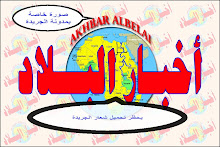أكد خالد طوقان رئيس هيئة الطاقة الذرية الأردنية يوم 16 كانون الأول/ ديسمبر أن الأردن يعتزم إنشاء أول محطة نووية للأغراض السلمية لتبدأ العمل خلال ثماني سنوات من 2008.
وقال طوقان بعد لقائه وفداً من شركة أريفا النووية الفرنسية في عمان أنه تمت مناقشة بناء محطة نووية في الأردن بقدرة 1100 ميجاواط، خلال السنوات الثماني المقبلة.
وأوضح طوقان أن هذه الإجراءات تتضمن بدء الدراسات التفصيلية لموقع المحطة النووية وتدريب الموظفين في المحطات النووية على العمل الإشعاعي والأمن والأمان النووي.
وتمّ اختيار موقع المحطة النووية على بعد 8 كلم من شاطئ البحر الأحمر في منطقة العقبة الاقتصادية الخاصة ومساحتها حوالي 180 دونماً وتتسع لأربع أو خمس مفاعلات.
كانت أريفا قد وقعت اتفاقاً مع الحكومة الأردنية في 2 تشرين الأول/ أكتوبر 2008 من أجل الاستكشاف المشترك لليورانيوم في الأردن. ويسعى الأردن إلى إنشاء أول مفاعل نووي لهذا الغرض بحلول عام 2015.
وأكد نادر الذهبي رئيس الوزراء الأردني اهتمام الأردن بإنجاز البرنامج النووي للأغراض السلمية لبلاده لأنه خيار استراتيجي للطاقة المستقبلية، والتي سيكون لها انعكاسات مباشرة على مختلف القطاعات الاقتصادية.
وقال طوقان بعد لقائه وفداً من شركة أريفا النووية الفرنسية في عمان أنه تمت مناقشة بناء محطة نووية في الأردن بقدرة 1100 ميجاواط، خلال السنوات الثماني المقبلة.
وأوضح طوقان أن هذه الإجراءات تتضمن بدء الدراسات التفصيلية لموقع المحطة النووية وتدريب الموظفين في المحطات النووية على العمل الإشعاعي والأمن والأمان النووي.
وتمّ اختيار موقع المحطة النووية على بعد 8 كلم من شاطئ البحر الأحمر في منطقة العقبة الاقتصادية الخاصة ومساحتها حوالي 180 دونماً وتتسع لأربع أو خمس مفاعلات.
كانت أريفا قد وقعت اتفاقاً مع الحكومة الأردنية في 2 تشرين الأول/ أكتوبر 2008 من أجل الاستكشاف المشترك لليورانيوم في الأردن. ويسعى الأردن إلى إنشاء أول مفاعل نووي لهذا الغرض بحلول عام 2015.
وأكد نادر الذهبي رئيس الوزراء الأردني اهتمام الأردن بإنجاز البرنامج النووي للأغراض السلمية لبلاده لأنه خيار استراتيجي للطاقة المستقبلية، والتي سيكون لها انعكاسات مباشرة على مختلف القطاعات الاقتصادية.
The chairman of Jordan’s Atomic Energy Commission (JAEC) confirmed that Jordan is on the road to constructing its first nuclear power generating plant. On December 16, Khaled Tawqan said the plant was expected to be up and running within eight years.
Tawqan spoke after meeting with a delegation from the French company Areva in Amman. He said they discussed the construction of a nuclear power plant with a capacity of 1,100 MW that would be built over the next eight years
Tawqan said that the project will begin with a detailed study of the site proposed for the plant and the training of radiation, safety and security personnel to work there.
The site for the nuclear plant, around 8 km from the Red Sea coast, is in the Aqaba Special Economic Zone, which covers an area of about 180,000 square metres and has room for four or five reactors.
Areva signed an agreement with the Jordanian government on October 2, 2008, to undertake joint explorations for uranium in Jordan with a view to fuelling the country’s first nuclear reactor by 2015.
Jordanian Prime Minister Nadar Al-Dahabi has confirmed that accomplishing its nuclear programme for peaceful purposes is a priority for Jordon. He noted that it is a strategic choice for the nation’s future energy needs, which will have a direct impact on many sectors of the economy.
Tawqan spoke after meeting with a delegation from the French company Areva in Amman. He said they discussed the construction of a nuclear power plant with a capacity of 1,100 MW that would be built over the next eight years
Tawqan said that the project will begin with a detailed study of the site proposed for the plant and the training of radiation, safety and security personnel to work there.
The site for the nuclear plant, around 8 km from the Red Sea coast, is in the Aqaba Special Economic Zone, which covers an area of about 180,000 square metres and has room for four or five reactors.
Areva signed an agreement with the Jordanian government on October 2, 2008, to undertake joint explorations for uranium in Jordan with a view to fuelling the country’s first nuclear reactor by 2015.
Jordanian Prime Minister Nadar Al-Dahabi has confirmed that accomplishing its nuclear programme for peaceful purposes is a priority for Jordon. He noted that it is a strategic choice for the nation’s future energy needs, which will have a direct impact on many sectors of the economy.




